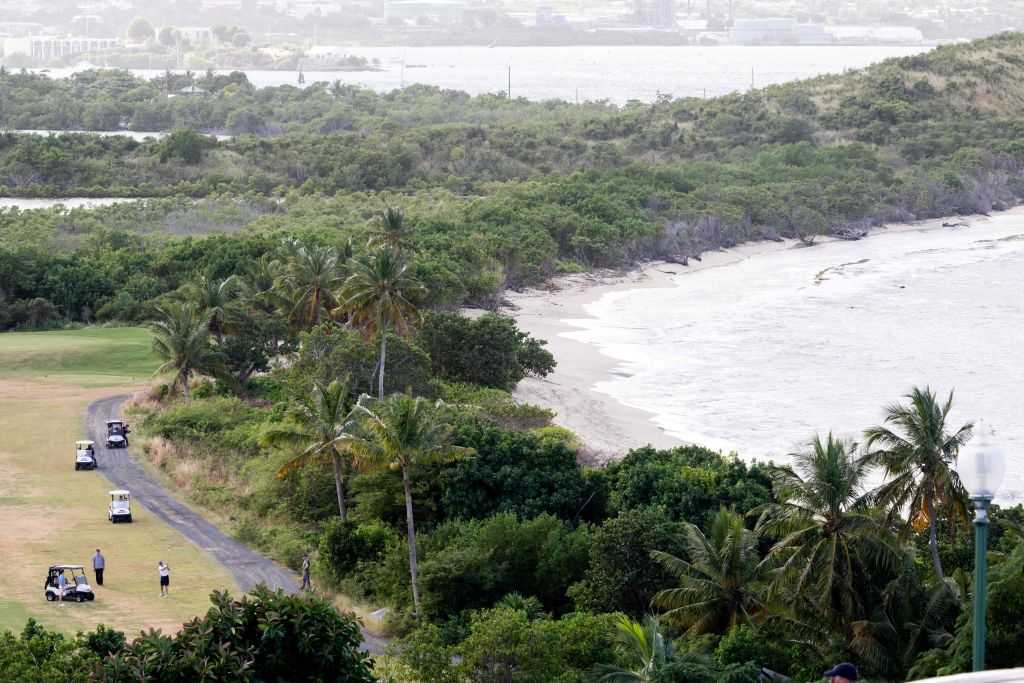
A virtual town hall held for residents of St. Croix, the largest island in the U.S. Virgin Islands, on Wednesday revealed that many locals still believe their water is unsafe to drink.
In November, the U.S. federal government declared a state of emergency in St. Croix over potential issues with lead contamination in the water supply. For children, exposure to high levels of lead is linked to lower IQ, slowed growth and development, and even brain damage.
Concerns were first raised in St. Croix after the U.S. Environmental Protection Agency (EPA) and researchers from the University of the Virgin Islands collaborated to collect water samples from homes on the island in late September. The readings found that 38 out of 108 samples taken had levels that were above the national health standard of 1300 parts per billion.
Subsequent tests conducted by the EPA found much less dramatic results. A report released in late December showed that only three out 109 samples had lead levels above the health standard. However, the EPA reports also found that the water distribution system is over 60-years-old and deteriorating. Local authorities also conducted their own test, which found that all 31 samples collected from kitchen taps were within the federal guidelines.
More From TIME
Marc Edwards, a Virginia Tech professor of civil and environmental engineering who helped identify the high lead levels in Flint, Michigan, told TIME in November that the first readings were highly irregular and likely to have been measured improperly.
“It looks very, very unusual. So unusual that I really don't believe it's legitimate sampling,” Edwards said. “It looks more like what I've seen when people make a mistake.”
He said that since lead contamination is considered the shared responsibility of both the homeowner and the utility company, utility companies sometimes try to test water before it enters people’s homes to show that any lead contamination that is found is the responsibility of the homeowner.
“My guess is they went out to the water meter, which is at the property line, and unscrewed something to get a sample. They expected that to show there was no lead so they could say, see there's no lead before the property line,” Edwards said. Instead, when they unscrewed the meter in order to collect water samples, it’s likely that lead brass parts of the meter contaminated the sample.
Residents of St. Croix complained about seeing red and brown water coming out of their taps. "Even if the lead is below 15 ppb (parts per billion), everyone knows that the water is still not safe,” a woman who identified herself as Shirley Smith pointed out during the virtual town hall.
In November, a group of St. Croix residents filed a 47-page class action lawsuit against U.S. territory’s Water and Power Authority and Seven Seas Water Corporation, accusing the utility of failing to provide safe water to the community.
The U.S. Virgin Islands government has responded so far by distributing thousands of water vouchers, installing lead-free meter boxes, and providing free lead testing for children 6 years old or younger.
Authorities expect to expand lead screening to other nearby islands as well by the end of the month. On Thursday, government officials are expected to start distributing free water filters to homes and businesses in affected areas.
More Must-Reads From TIME
- The 100 Most Influential People of 2024
- Coco Gauff Is Playing for Herself Now
- Scenes From Pro-Palestinian Encampments Across U.S. Universities
- 6 Compliments That Land Every Time
- If You're Dating Right Now , You're Brave: Column
- The AI That Could Heal a Divided Internet
- Fallout Is a Brilliant Model for the Future of Video Game Adaptations
- Want Weekly Recs on What to Watch, Read, and More? Sign Up for Worth Your Time
Contact us at letters@time.com